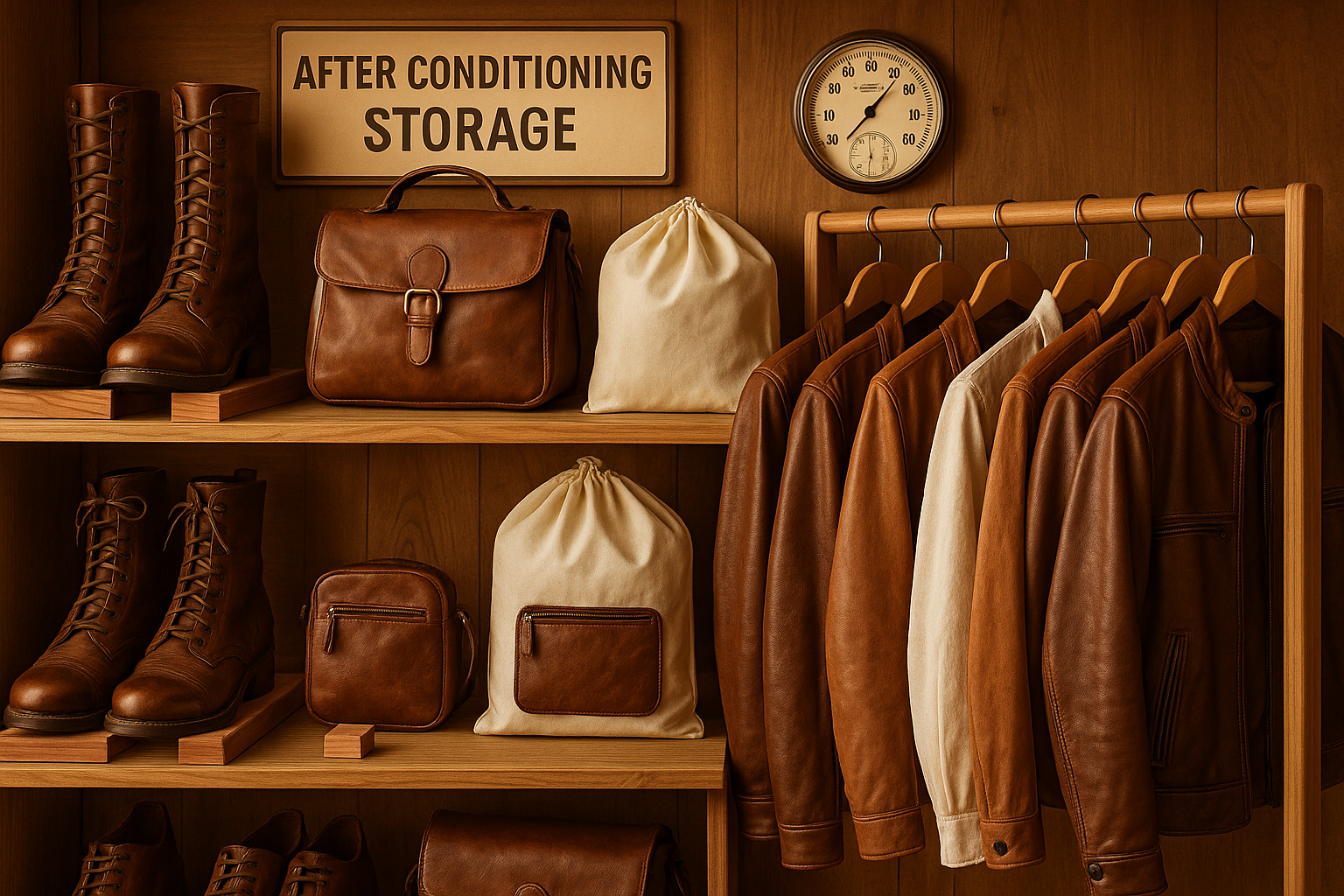
Safe storage after conditioning
Conditioning your leather jacket restores its softness and shine, but safe storage afterward is just as important. This blog covers the best practices for storing leather after conditioning, including proper drying, garment bag choices, and closet organization tips to maintain long-lasting quality.
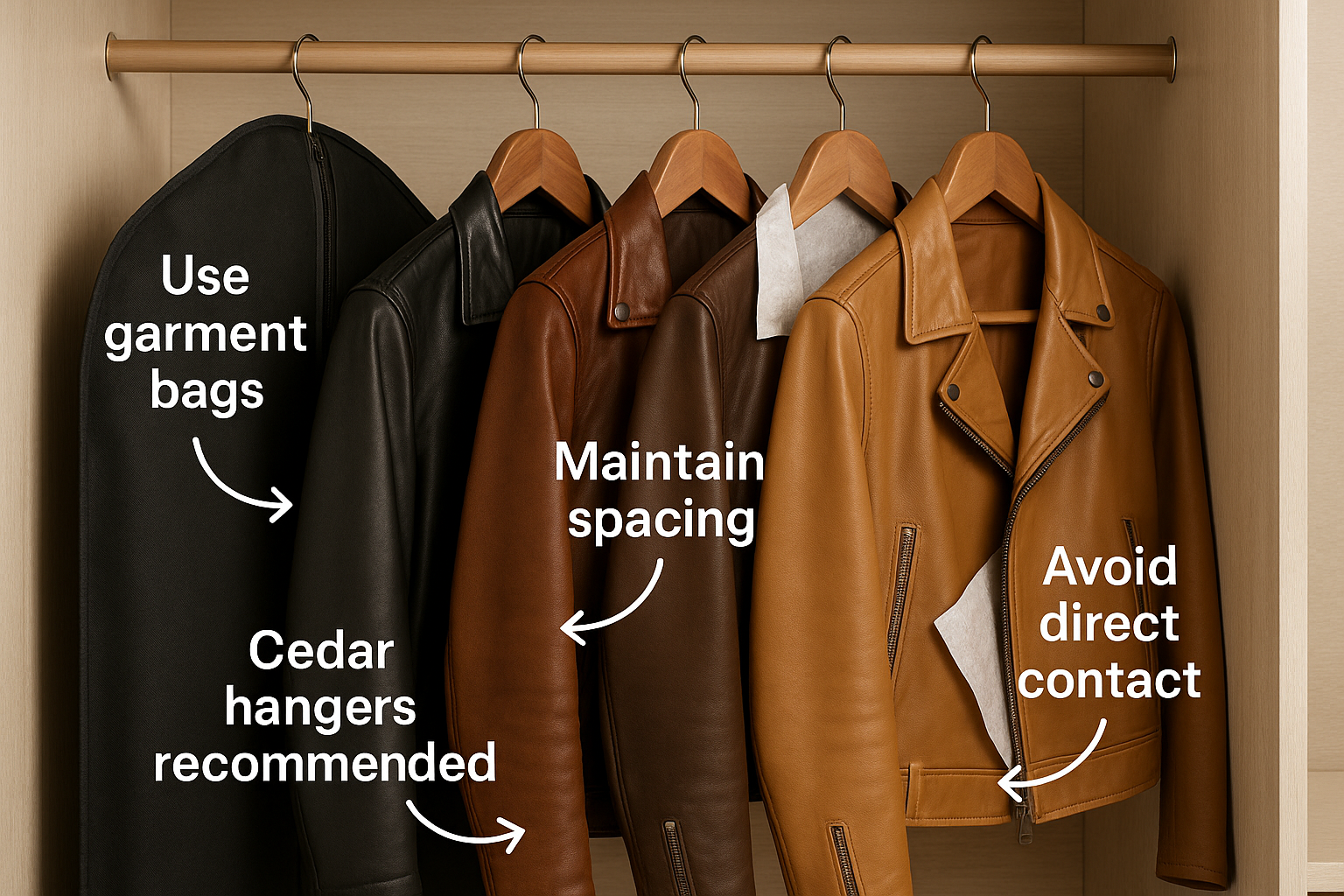
Breathable garment bags for long-term storage
Leather jackets can sometimes transfer color onto other clothing stored nearby, especially in warm or humid closets. This blog explains why color transfer happens, how to prevent it, and the best practices for keeping your leather jacket (and surrounding clothes) safe and spotless.
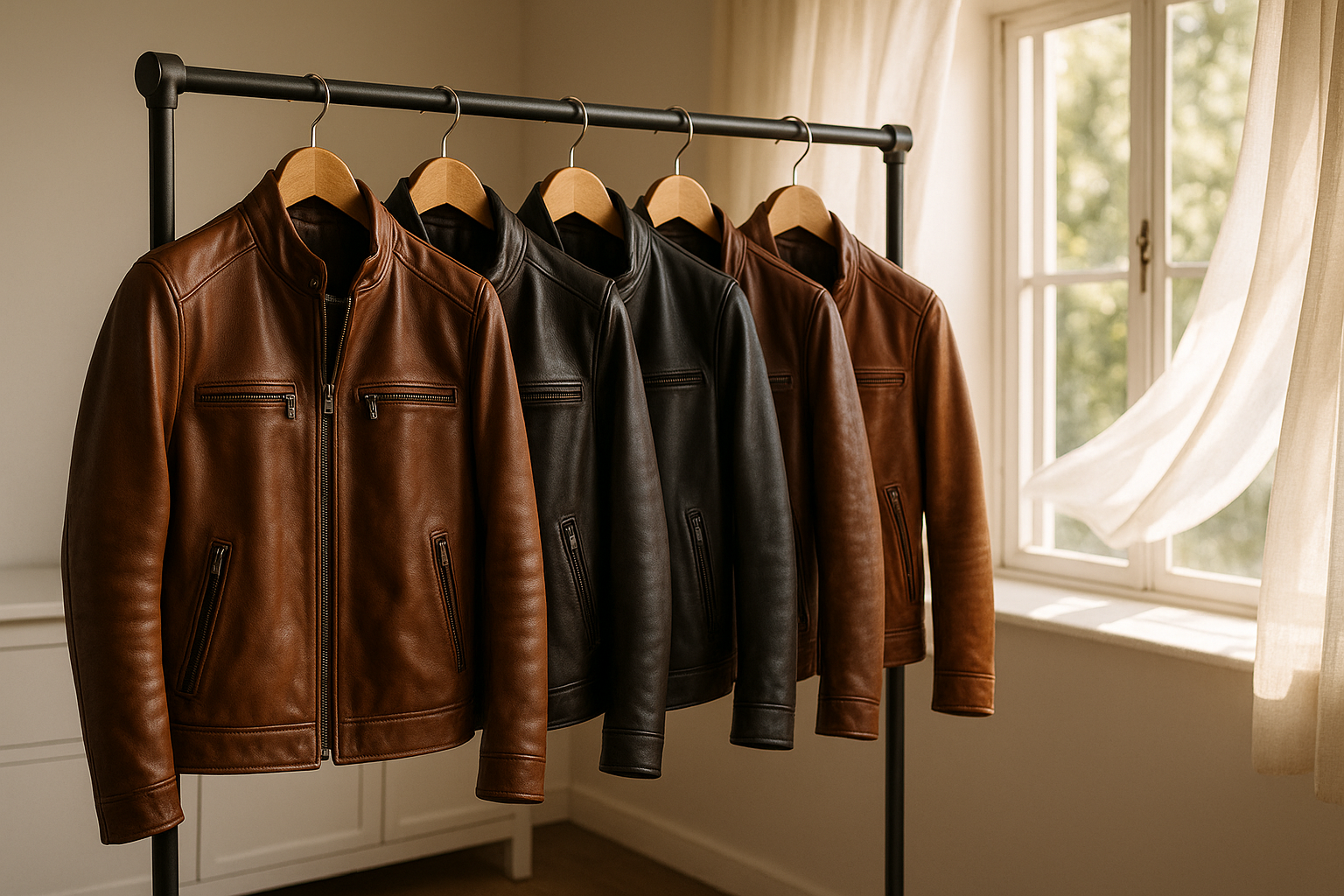
Airing out jackets after cleaning before storage
Airing out your jacket after cleaning prevents trapped moisture, unpleasant odors, and long-term fabric or leather damage. This blog explains why fresh air circulation is crucial before storage, how to properly air out different jacket materials, and tips for maintaining their quality.
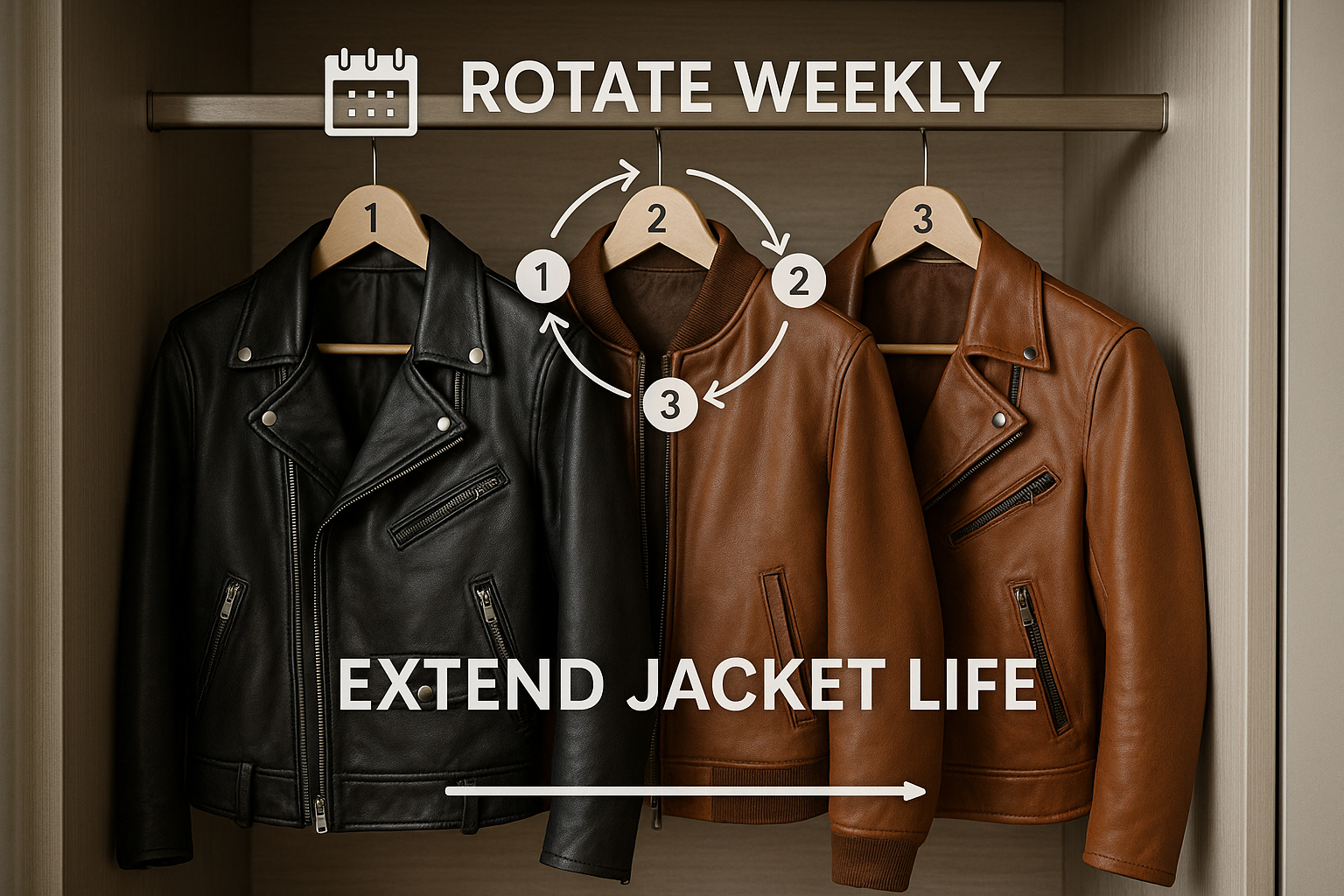
Rotating jackets to reduce wear damage
Rotating jackets to reduce wear damage is a smart and easy way to keep your outerwear looking fresh and lasting longer. By alternating between different jackets, you give each piece time to breathe, recover, and maintain its shape, color, and texture.
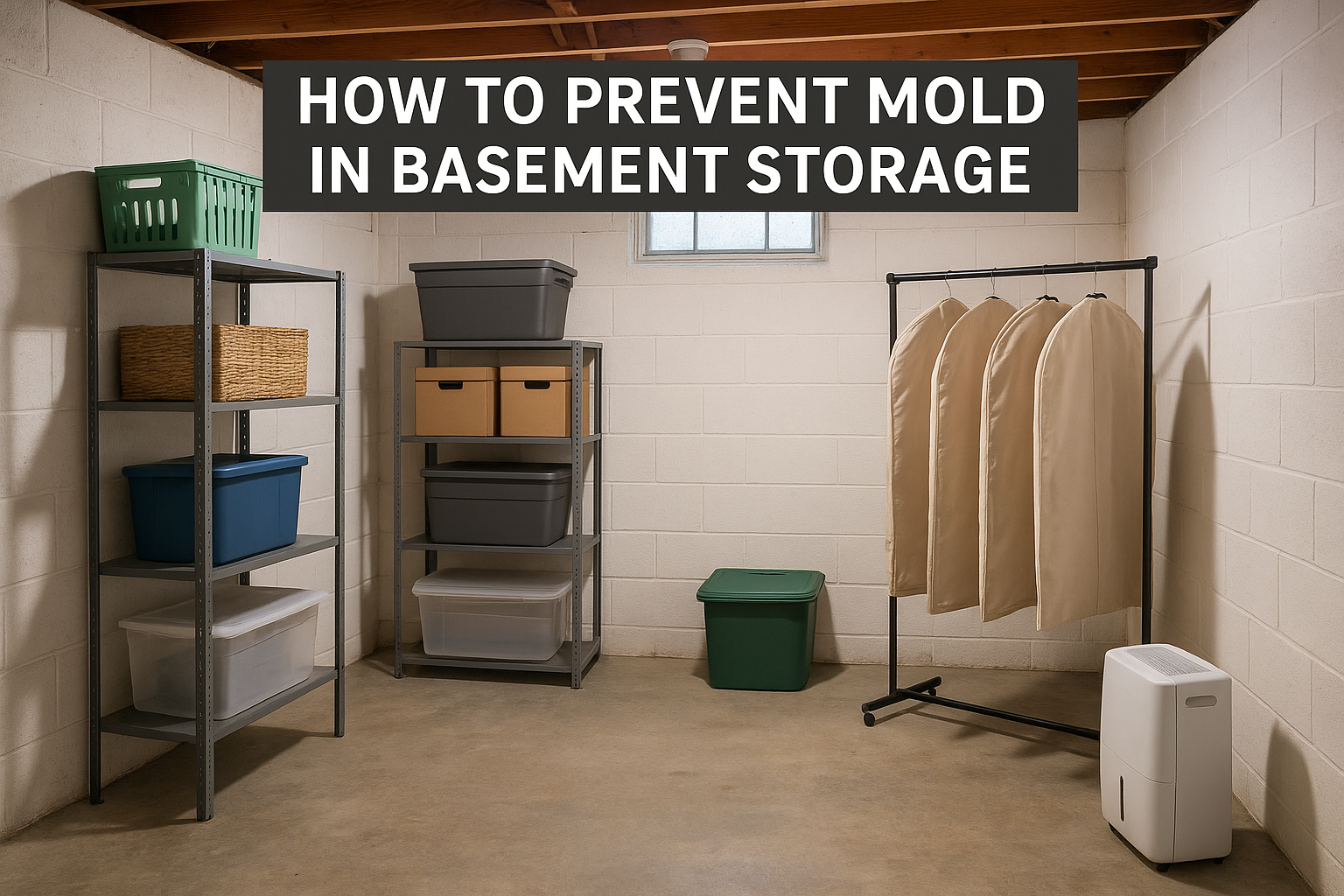
How to prevent mold in basement storage
Storing leather away from sunlight exposure is crucial for preventing fading, cracking, and premature wear. By keeping leather in cool, shaded spaces, using breathable covers, and maintaining proper humidity, you can ensure your leather pieces remain timeless and elegant for years.
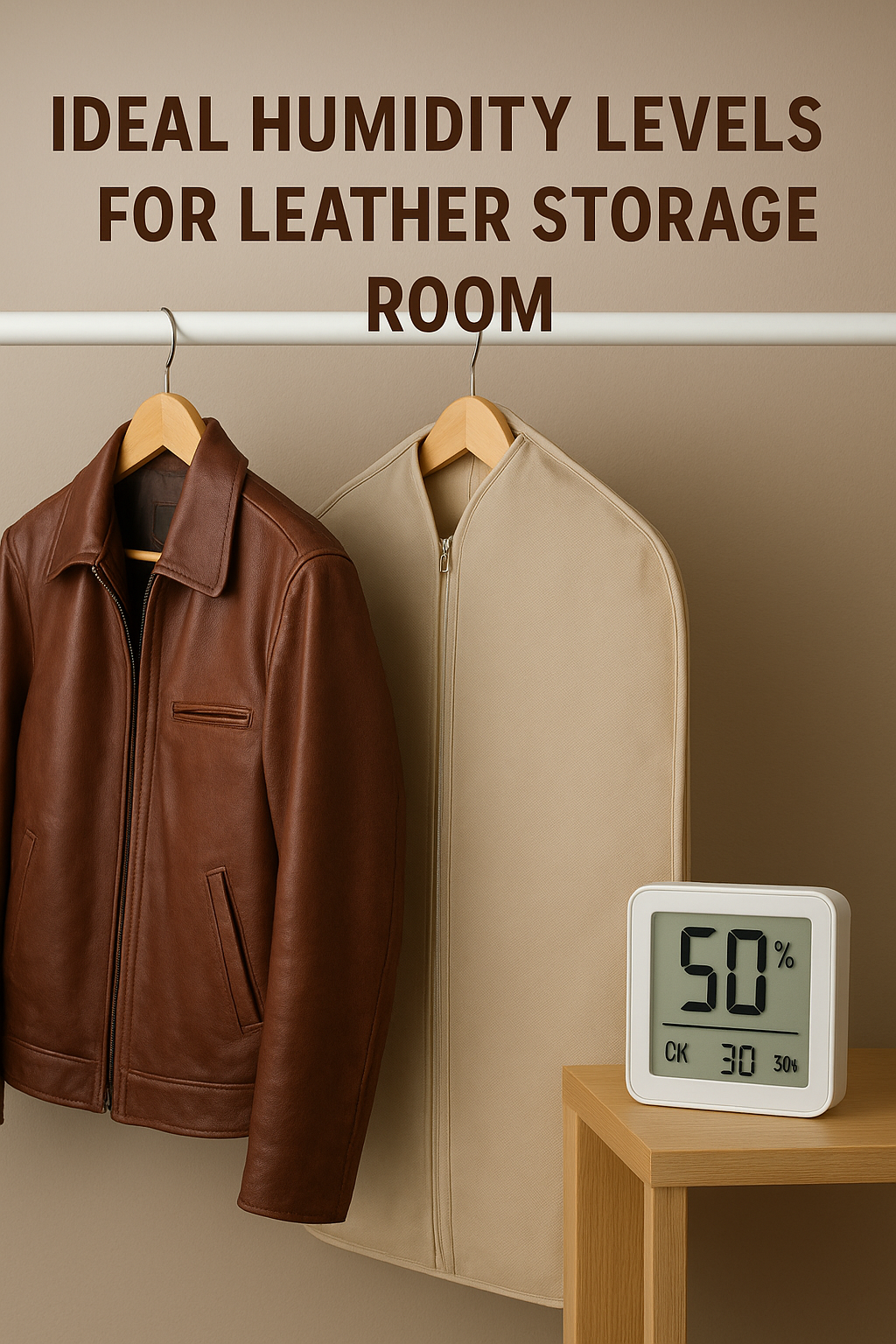
Ideal humidity levels for leather storage room
The ideal humidity level for a leather storage room is between 40% and 55%, with a steady temperature around 60–70°F. Maintaining this balance protects leather from mold, cracking, and fading. With the right humidity control and breathable storage solutions, your leather items can last a lifetime.




